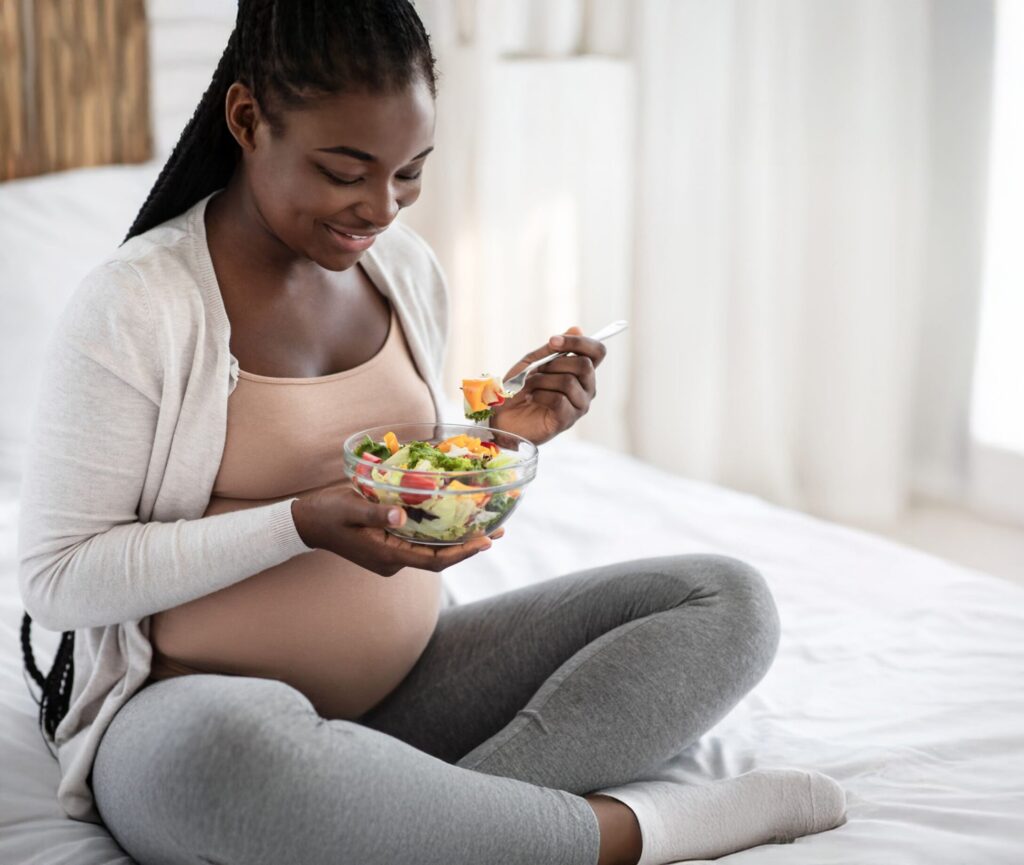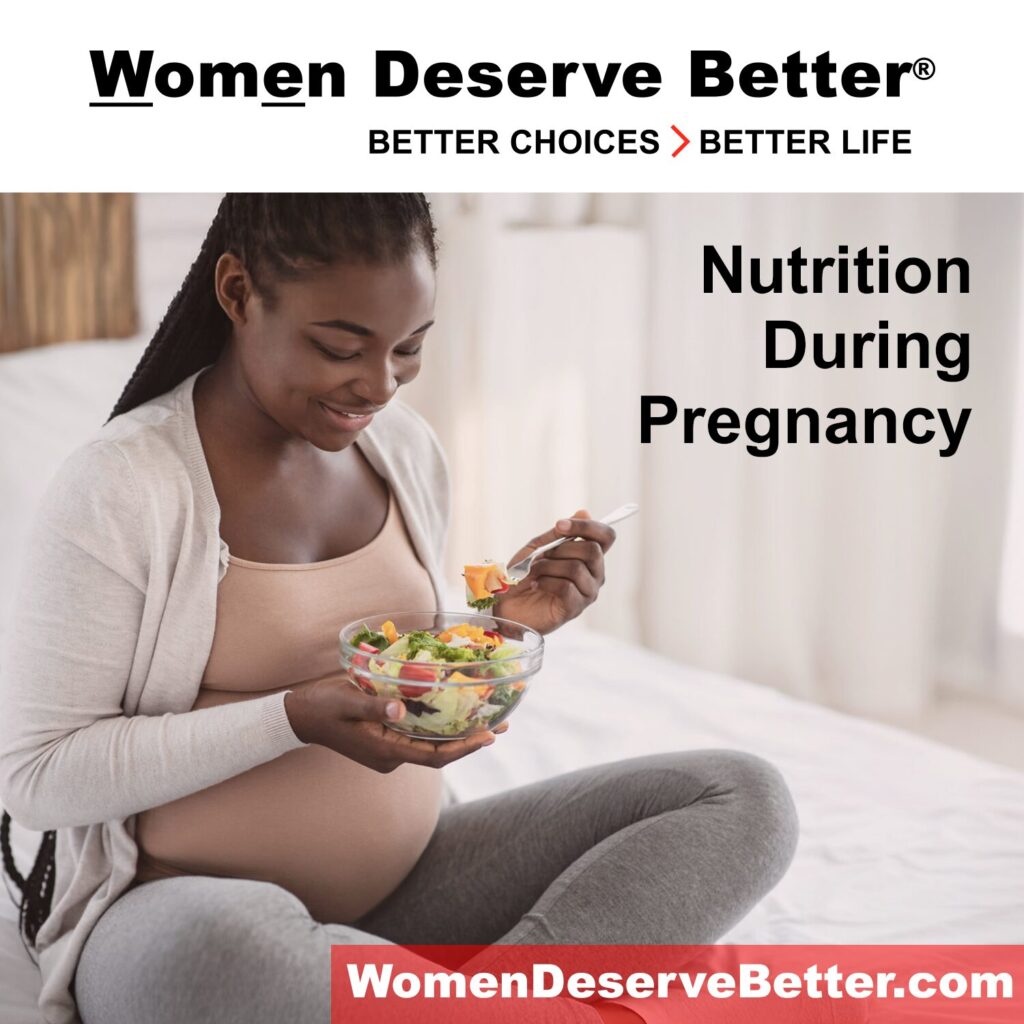
Maintaining a balanced, nutrient-rich diet during pregnancy is essential for the health of both mother and baby. Proper nutrition supports fetal development, helps manage pregnancy symptoms, and lowers the risk of complications. That said, it can be challenging to nourish your body while dealing with nausea, morning sickness, and the demands of daily life. Do your best to follow these nutritional guidelines to support both your baby’s health and your own well-being! Remember to consult with a registered dietitian and your doctor or midwife about your diet throughout pregnancy.
Essential Nutrients for Pregnancy
- Folic Acid: This is vital for preventing neural tube defects. Aim for 400–800 mcg daily through supplements and foods like leafy greens, citrus fruits, and fortified grains. Your prenatal vitamin will contain this.
- Iron: Iron supports increased blood volume and prevents anemia. Incorporate lean meats, beans, lentils, and spinach into your meals.
- Calcium & Vitamin D: Essential for developing strong bones and teeth. Eat dairy products, fortified nut milks and juices, and safe sun exposure.
- Omega-3 Fatty Acids: Important for brain and eye development. Include low-mercury fish such as salmon, sardines, and herring in your diet. A fish oil supplement can also be taken if you do not like fish.
- Choline: Supports brain development. Found in eggs (especially the yolk), lean meats, and legumes.
Diet Tips:
- Diverse Diet: Eat a variety of fruits, vegetables, whole grains, lean proteins, and healthy fats. Your caloric needs will increase in the later half of pregnancy, so make sure to eat when you are hungry and focus on foods that keep you full, like proteins and healthy fats.
- Hydration: Drink plenty of water to support increased blood volume and prevent dehydration. Aim for 12 cups a day, and avoid sugary pops and excess caffeine.
- Limit Processed Foods: Reduce intake of foods high in added sugars, saturated fats, and sodium. Focus on whole foods.
- Safe Seafood Choices: Opt for fish low in mercury, such as cod, salmon, and tilapia.
- Prenatal Vitamins: Take a prenatal supplement daily to ensure the proper intake of essential nutrients. If pills are tough on your stomach, try a gummy form that may be easier to take.
Foods and Substances to Avoid
- High-Mercury Fish: Avoid shark, swordfish, king mackerel, and tilefish.
- Unpasteurized Products: Steer clear of unpasteurized milk and cheeses to reduce the risk of listeria.
- Raw or Undercooked Foods: Avoid raw seafood, eggs, and meats to prevent foodborne illnesses.
- Excessive Caffeine: Limit caffeine intake to less than 200 mg per day.
- Alcohol and Tobacco: Completely avoid alcohol and tobacco products during pregnancy. Also avoid all recreational drugs and any drugs not prescribed by your doctors.
You can read the CDC guidelines safe food choices for pregnant women here.
Good Foods to Eat During Pregnancy
- My favorite foods during the first half of pregnancy, while I struggled with nausea and morning sickness, included protein shakes, fruit, toast with peanut butter, scrambled eggs, and chicken noodle soup. I also kept graham crackers and dry cereal with me, as an empty stomach contributed to my nausea.
- I craved sugar, so for a healthy alternative to ice cream I often made banana “nice cream.” You can make this by blending frozen overripe bananas with peanut butter and cocoa powder in a blender, and adding protein powder if you’d like more protein! You can eat it right away for a soft serve consistency or freeze it for 1 to 2 hours for a firmer consistency. Soups are a great way to get in nutrients if you’re not feeling great. You can buy a rotisserie chicken to save time and shred it, add it to sauteed veggies and chicken broth for a very easy meal!
Here is another great article that is all about nausea during pregnancy and what foods help!
By Bella Fechter
